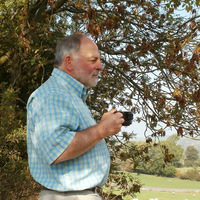Research Interests:
3. Learning at the individual and group levels Most of us are familiar with Revans’ formula of L 1⁄4 P + Q. Schein would suggest that we might modify the formula to L 1⁄4 P + Q (h) (humble questions). In Humble inquiry, Schein states that... more
3. Learning at the individual and group levels Most of us are familiar with Revans’ formula of L 1⁄4 P + Q. Schein would suggest that we might modify the formula to L 1⁄4 P + Q (h) (humble questions). In Humble inquiry, Schein states that effective groups are groups that continuously learn, and we know that the most successful action learning groups are those who regularly review what they have learned and act upon that learning.
Research Interests:
Research Interests:
Research Interests:
Introduction Over the years, we have been developing critical friendships as an approach to publishing AMED’s online pdf journal e-Organisations and People (e-O&P). In my own writing and editing, critical friends have encouraged me to... more
Introduction Over the years, we have been developing critical friendships as an approach to publishing AMED’s online pdf journal e-Organisations and People (e-O&P). In my own writing and editing, critical friends have encouraged me to believe that I have something useful to surface, explore and express in different forms, formats and styles of writing and speaking. They have also supported me in the dark days of my periodic writing doldrums. They have questioned and challenged my ideas and actions, provided me with prompt and honest feedback, and introduced me to fresh ideas and perspectives to deepen and extend my thinking and practice. Likewise, I try to do this with others.
This paper is a modified version of a presentation made to the Regional Educational Research Seminar, University College of Botswana, May 1981.
We embarked upon this project of commissioning and editing this special themed issue of e-O&P with a shared assumption that trust is an essential feature of hopeful personal and organisational relationships. Yet as soon as we started to... more
We embarked upon this project of commissioning and editing this special themed issue of e-O&P with a shared assumption that trust is an essential feature of hopeful personal and organisational relationships. Yet as soon as we started to think self-consciously about trust, it seemed beyond our comprehension. Questions such as: What is trust? How can it be measured? What are its ‘parts’? How can we improve the quality of trust? all seemed inadequate. Yet, daily, we form trusting relationships, we offer something, we show vulnerability to, and see it in, others. There is clearly a response and context through which trust is either mediated or undermined. Intuitively, we knew that trust is important for us and for those around us. There is fear of being let down, yet a hope that relationships might develop in mutually beneficial ways. And we can envisage that such hopes and fears are mirrored in those with whom we interact. We sense powerfully that – whatever it is - trust is important....
This paper is a modified version of a presentation made to the Regional Educational Research Seminar, University College of Botswana, May 1981.
